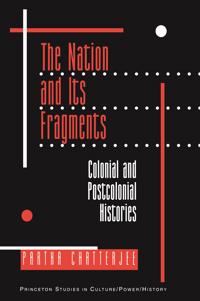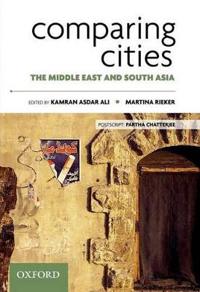Politics of the Governed, The: Reflections on Popular Politics in Most of the World (Övrig)
avPartha Chatterjee
ISBN: 9780231130639 - UTGIVEN: 2006-09-08Often dismissed as the rumblings of "the street," popular politics is where political modernity is being formed today, according to Partha Chatterjee. The rise of mass politics all over the world in the twentieth century led to the development of new techniques of governing population groups. On the[...]
Empire and Nation: Selected Essays (Övrig)
avPartha Chatterjee
ISBN: 9780231152204 - UTGIVEN: 2010-04-01Partha Chatterjee is one of the world's greatest living theorists on the political, cultural, and intellectual history of nationalism. Beginning in the 1980s, his work, particularly within the context of India, has served as the foundation for subaltern studies, an area of scholarship he continues t[...]
Empire and Nation: Selected Essays (Övrig)
avPartha Chatterjee
ISBN: 9780231152211 - UTGIVEN: 2010-04-01Partha Chatterjee is one of the world's greatest living theorists on the political, cultural, and intellectual history of nationalism. Beginning in the 1980s, his work, particularly within the context of India, has served as the foundation for subaltern studies, an area of scholarship he continues t[...]
Lineages of Political Society: Studies in Postcolonial Democracy (Övrig)
avPartha Chatterjee
ISBN: 9780231158121 - UTGIVEN: 2011-11-01Partha Chatterjee, a pioneering theorist known for his disciplinary range, builds on his theory of "political society" and reinforces its salience to contemporary political debate. Dexterously incorporating the concerns of South Asian studies, postcolonialism, the social sciences, and the humanities[...]
Lineages Of Political Society (Pocket)
avPartha Chatterjee
ISBN: 9780231158138 - UTGIVEN: 2011-11-01Partha Chatterjee, a pioneering theorist known for his disciplinary range, builds on his theory of "political society" and reinforces its salience to contemporary political debate. Dexterously incorporating the concerns of South Asian studies, postcolonialism, the social sciences, and the humanities[...]
The Nation and Its Fragments (Häftad)
avPartha Chatterjee
ISBN: 9780691019437 - UTGIVEN: 1993-10In this book, the prominent theorist Partha Chatterjee looks at the creative and powerful results of the nationalist imagination in Asia and Africa that are posited not on identity but on difference with the nationalism propagated by the West. Arguing that scholars have been mistaken in equating pol[...]
Princely Impostor?, A: The Strange and Universal History of the Kumar of Bhawal (Pocket)
avPartha Chatterjee
ISBN: 9780691090313 - UTGIVEN: 2002-03-04Black Hole of Empire, The: History of a Global Practice of Power (Övrig)
avPartha Chatterjee
ISBN: 9780691152004 - UTGIVEN: 2012-04-08When Siraj, the ruler of Bengal, overran the British settlement of Calcutta in 1756, he allegedly jailed 146 European prisoners overnight in a cramped prison. Of the group, 123 died of suffocation. While this episode was never independently confirmed, the story of "The black hole of Calcutta' was wi[...]
The Black Hole of Empire (Pocket)
avPartha Chatterjee
ISBN: 9780691152011 - UTGIVEN: 2012-04-08When Siraj, the ruler of Bengal, overran the British settlement of Calcutta in 1756, he allegedly jailed 146 European prisoners overnight in a cramped prison. Of the group, 123 died of suffocation. This title follows the ever-changing representations of this historical event and founding myth of the[...]
Comparing Cities (Inbunden)
avKamran Asdar (EDT) Ali, Martina (EDT) Rieker, Partha (CON) Chatterjee
ISBN: 9780195474985 - UTGIVEN: 2010-01These articles seek to highlight the changing social dynamics in Middle Eastern and South Asian cities. The comparative framework builds on a shared history of the colonial encounter, modernity, nationalism and urbanity and is further deepened by the larger framework of Muslim culture that influence[...]












